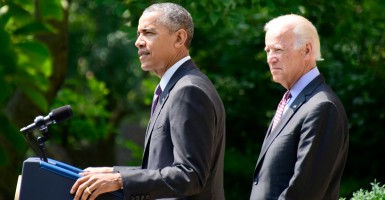President Obama announced Wednesday morning that Cuba and the United States will be reopening embassies in each other’s capitals after over a half century of severed diplomatic ties.
This morning’s news follows Obama’s announcement in December of 2014 to begin normalizing relations with Cuba.
American and Cuban diplomats have been working on negotiations over the embassies for the past six months, but secret talks began much earlier than December.
Today, Obama stated that U.S. Secretary of State John Kerry will be traveling to Havana this summer to “proudly raise the American flag over our embassy once more.”
Opening the embassies is just one step for the countries to normalize relations, following the May removal of Cuba from the U.S. list of states that sponsor terrorism.
“When something isn’t working, we can and will change,” Obama said in his speech this morning, referring to decades of frozen relations with the island that have failed to change the activities of the Cuban government.
For opponents of Obama’s new Cuba policy, the opening of embassies represents another perk awarded to the Cuban government that it doesn’t deserve.
“We have to make a difference between the Cuban people and the Cuban government,” said Ana Quintana, a policy analyst on Latin America and the Western Hemisphere at The Heritage Foundation.
Supporters of normalizing relations believe improved relations will push the Cuban government to adopt policies that will help the Cuban people.
“The embargo, or as the Cubans call it, ‘the blockade,’ was not working,” said Vanessa Neumann, a Latin America expert and senior fellow at the Foreign Policy Research Institute.
“It’s a chance for the U.S. to influence Cuba’s policy a lot more through engagement than through isolation. You need to give people something to lose or some relationship to damage in order for them to care about what you want or what you can achieve.”
Quintana sees things differently.
In setting up an embassy and encouraging Americans to travel to Cuba, the Obama administration is recognizing Cuba as a legitimate state and is helping to fund its hostility against the U.S. and abuse of its people, Quintana says.
“We’re throwing a lifeline to the Castro regime,” Quintana said.
One thing that Obama cannot change, though, is the U.S. trade embargo on Cuba that has been in place for 53 years.
Only Congress has the power to lift those economic sanctions.
Quintana believes that this is not likely to happen.
“Congress is overwhelmingly showing that it does not support the Cuba policy,” Quintana said.
In order to open an embassy, Congress must appropriate funds to do so.
Furthermore, any appointment of a Cuban ambassador will have to be approved by the Senate.




























